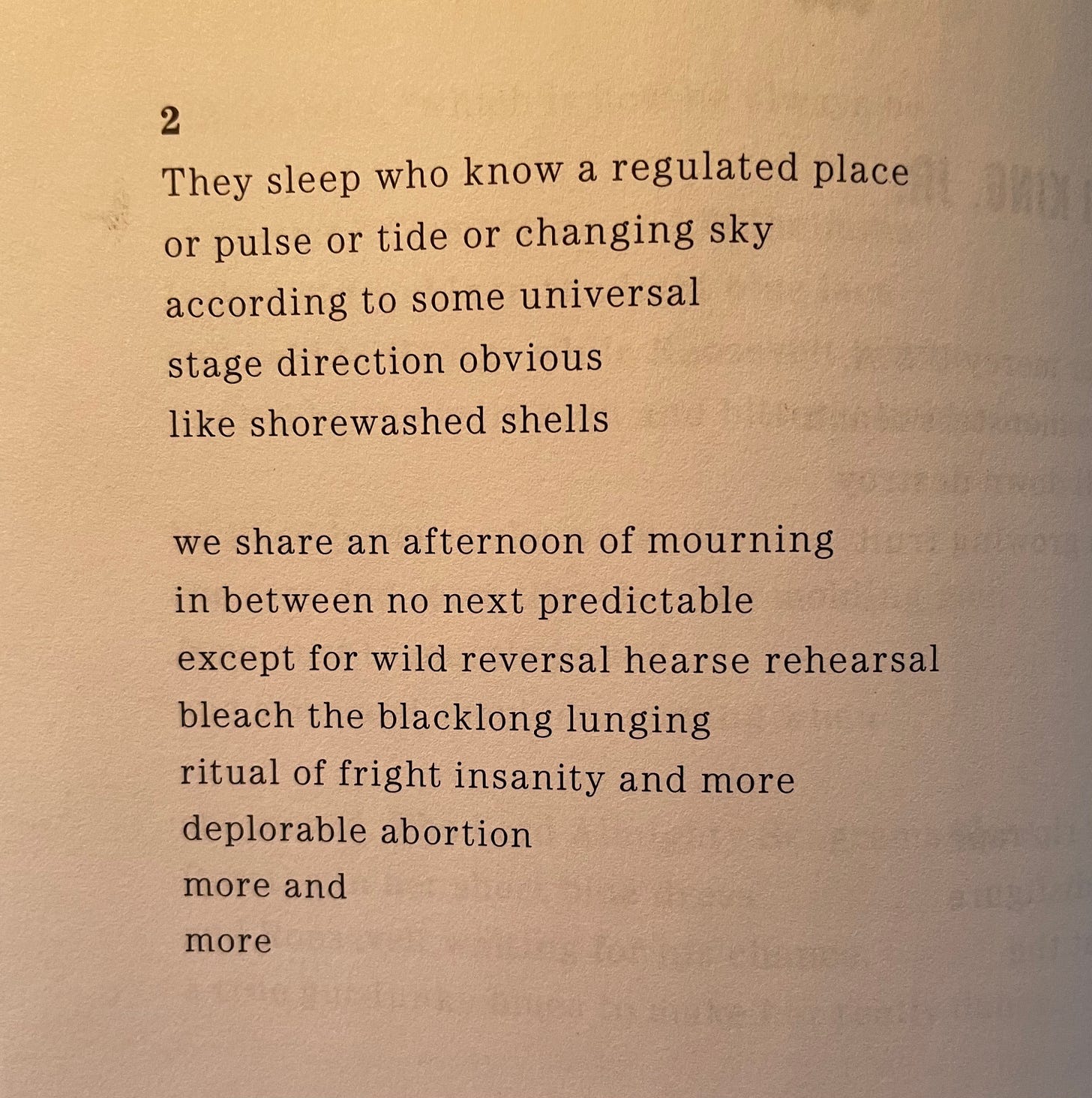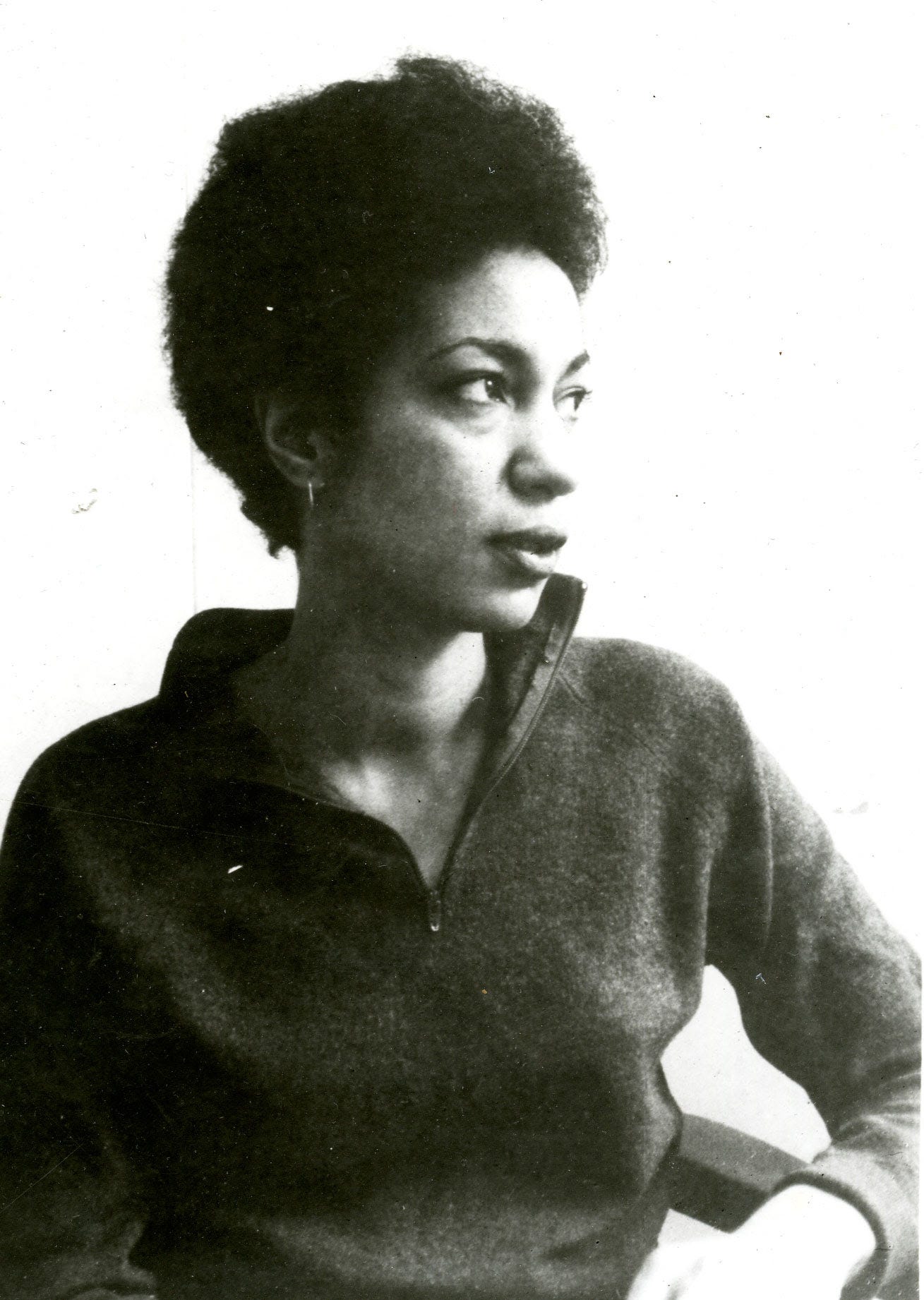I talked to the great Anthony Reed about June Jordan’s poem “In Memoriam: Martin Luther King, Jr.” You can find the episode on Apple Podcasts, Spotify, and Google Podcasts.
Anthony’s scholarship has meant a lot to me in my own work, and I knew he was someone I’d want as an early guest on the podcast. As I mention at the top of the episode, it occurred to me, as Anthony and I were scheduling our conversation—assuming I kept to the schedule established so far—that his episode would be published on MLK Day. I asked Anthony how he felt about that, and he suggested that we lean into the occasion, offering this poem, which he thought might provide a kind of “counter-programming” to the anodyne forms of commemoration we so often encounter on this holiday.
I link to the poem above, but if you’d like to see it instead, here it is from my edition of A June Jordan Reader (Alice James Books, 2017).
The poem was originally published in Jordan’s Some Changes (1971).
We listen to a recording of Jordan reading the poem, which prompts a discussion of Jordan’s interest in something she called “vertical rhythm.” Here’s some of what Jordan had to say about that concept, during a classroom visit with Allen Ginsberg:
I thought that when.. whenever anybody, particularly myself, got into a particular kind of momentum in a poem, that seemed to me pretty.. a pretty good bet that you wouldn’t lose your audience. And I started to think about this a bit and concentrate, and I, self-consciously, finally identified what it was, and it was what I call ”vertical rhythm”, which is what I referred to before – and the first poem that I…(I had written poems that had that in there before, a lot of people had, so I knew what it was) and then I came up with this concept. And what I really meant was not about jumping from one image to another but rather a rhythmical momentum – that the spar, the structure of [the] poem, the spinal structure, of the poem is rhythm, rhythmical. And (so) you choose your words and go on so that if the reader of the poem as well as the listeners to the poem are both compelled from one line to the next, they have to keep going, at a certain pace. And once the reader and the listener hears, gets into that structure you can’t get out, really, until it’s over.
One of the things I loved about talking with Anthony was how wide-ranging the conversation got: in our conversation Anthony mentioned things like Lucy Terry’s poem “Bars Fight,” Sonia Sanchez’s “A Letter to Dr. Martin Luther King,” Bob Marley’s “I Shot the Sheriff,” Robert Frost’s “Stopping by Woods on a Snowy Evening,” and William Wordsworth’s “Preface to Lyrical Ballads.” Even after we stopped recording, it occurred to Anthony that Jordan’s line “They sleep who know a regulated place” might be echoing John Milton’s famous line “They also serve who only stand and wait,” from the sonnet “When I Consider How My Light is Spent.” Thrilling for me to talk to someone whose mind works this way.
Ultimately, what I think I’ll treasure most from this conversation is how Anthony connected Jordan’s words on “freedom” (“I think that I am trying to keep myself free, that I am trying to become responsive and responsible to every aspect of my human being”) to the collectivity imagined in the line “we share an afternoon of mourning.”
Anthony Reed is Professor of English and the Norman L. and Roselea J. Goldberg Professor of Fine Arts at Vanderbilt University. He is the author of Freedom Time: The Poetics and Politics of Black Experimental Writing (Johns Hopkins UP, 2014) and Soundworks: Race, Sound, and Poetry in Production (Duke UP, 2021). With Vera Kutzinski, Anthony edited Langston Hughes in Context (Cambridge UP, 2022). During my intro to the episode, I make reference to Anthony's article in The Black Scholar, “The Erotics of Mourning in Recent Experimental Black Poetry.” Follow Anthony on Twitter here.
Once again, you can find the episode on Apple Podcasts, Spotify, and Google Podcasts. Please follow, rate, and review the podcast if you like what you hear. And share it with a friend!







Wow, yet another remarkable and valuable discussion of a poem and so much more. And another podcast I will listen to again. Thank you both!